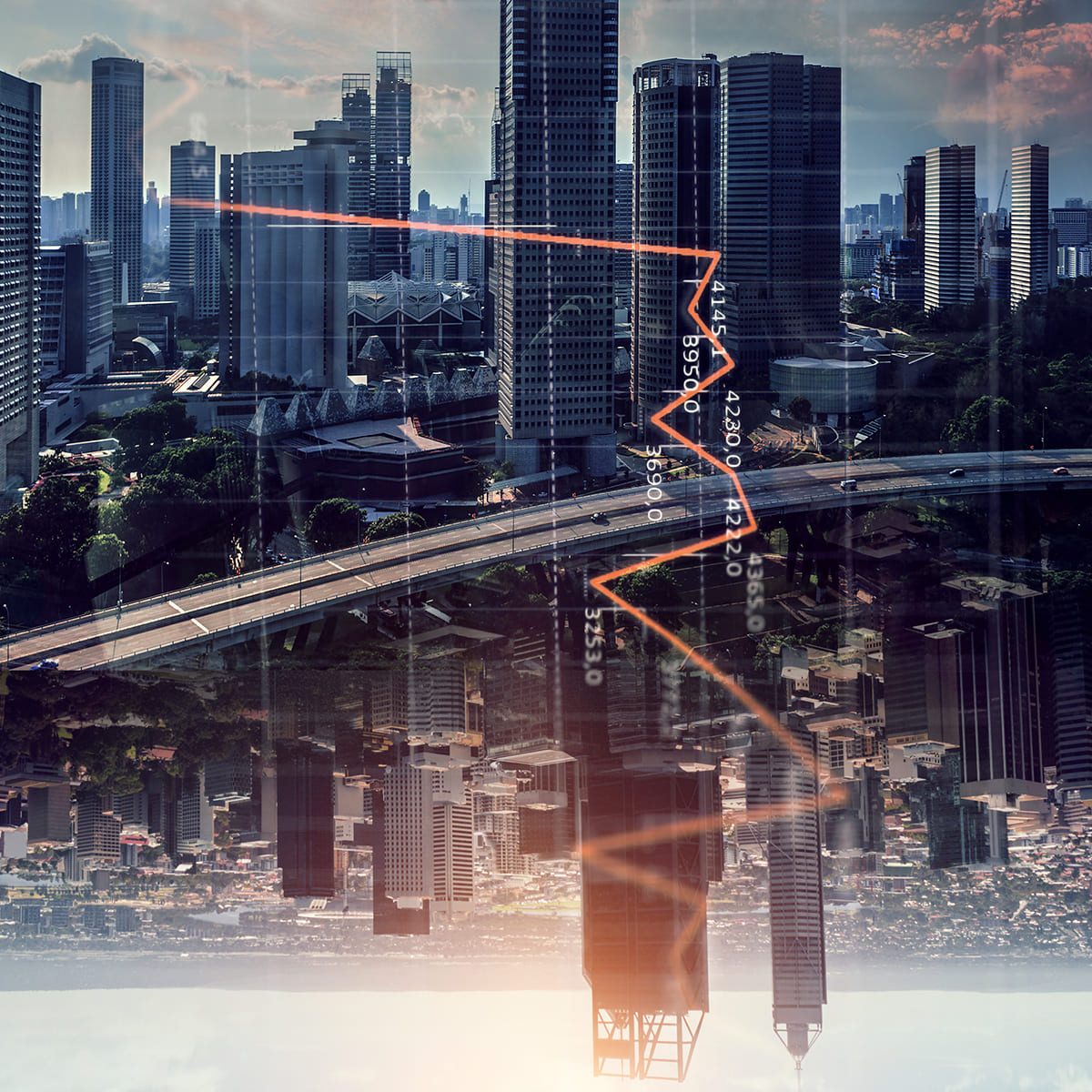FUTUREBILITY: THE GLOBAL FUTURE READINESS INDEX FOR COUNTRIES
Futurebility ranking developed by the World Future Organization (WFO) as part of the special Futurebility project. The project’s goal is to provide governments, international organizations, and the public with a reliable tool to assess and encourage global readiness for the future. The GFRI analyzes how well countries are prepared for the challenges and opportunities that the future will bring and how actively they are working to shape it.
Futurebility Rating System
Each country receives an overall rating, as well as ratings for six key categories. The rating scale includes the following levels:
- AAA (Exceptional Readiness): A global leader and a benchmark. This country demonstrates outstanding results across all criteria, has minimal risks, and is capable of effectively facing any future challenges.
- AA (Very High Readiness): This country has very strong indicators. It is resilient to most future challenges and has only minor vulnerabilities. It is considered a reliable partner.
- A (High Readiness): This country is generally well-prepared for the future but has a few notable weaknesses that require attention. Its key systems are functioning well, and the country is able to adapt to change.
- BBB (Moderate Readiness): This is a middle-tier rating. The country has both strengths and weaknesses. Significant reforms are needed to improve its readiness.
- BB (Insufficient Readiness): This country faces serious vulnerabilities and risks that could hinder its future development. Its systems may be unstable or inefficient.
- B (Low Readiness): This country is in a high-risk zone. It lags behind on many criteria and has serious systemic problems, which threaten its long-term development.
- CCC (Critically Low Readiness): This is the lowest rating. The country is in a critical state, is not prepared for basic future challenges, and requires immediate, fundamental transformations.

Index Structure and Criterion Categories
Category 1: Futuristic Literacy and Strategic Thinking
Objective: To assess a country’s ability to think systematically about the future, foresee changes, and integrate this knowledge into decision-making.
Sub-criteria / Indicators:
- National Foresight Strategies: The existence and quality of government programs and institutions for strategic foresight and scenario planning (e.g., national futures centers, strategic planning units within governments).
- Integration of the Future into Education: The inclusion of courses on futurology, critical thinking, and systems analysis in school and university curricula.
- A Culture of Openness to the Future: Public awareness and participation in discussions about the future (e.g., number of public foresight initiatives, activity of “future-oriented” NGOs).
- Digital and Statistical Literacy: The ability to analyze complex data to understand trends.

Category 2: Sustainability and Environmental Adaptation
Objective: To assess a country’s ability to adapt to climate change, manage natural resources, and transition to a sustainable economy.
Sub-criteria / Indicators:
- Climate Change Policy: Investments in renewable energy sources, greenhouse gas emission reduction programs, and adaptation strategies.
- Water and Land Resource Management: The efficiency of use and programs for biodiversity conservation.
- Sustainable Infrastructure: The share of “green” buildings, sustainable transportation systems, and smart cities.
- Resilience to Natural Disasters: The existence of early warning systems and infrastructural resilience to extreme weather events.

Category 3: Technological Innovation and Digital Transformation
Objective: To assess a country’s potential in developing and utilizing advanced technologies, as well as its capacity for digital transformation.
Sub-criteria / Indicators:
- R&D Investments: The percentage of GDP allocated to research and development, and the number of patents in advanced fields (AI, biotechnology, quantum technologies).
- Digital Infrastructure: The availability and speed of the internet, the development of 5G/6G, and data centers.
- AI and Automation: The level of AI adoption in the economy and public administration, AI regulation policies, and the number of AI specialists.
- Cybersecurity: National strategies and the level of protection for critical infrastructure.
- STEM Talent: The number of graduates in science, technology, engineering, and mathematics disciplines.

Category 4: Social Flexibility and Human Capital
Objective: To assess society’s ability to adapt to changes, maintain social cohesion, and develop human potential.
Sub-criteria / Indicators:
- Quality of Education and Lifelong Learning: The accessibility and quality of higher education, as well as retraining and upskilling programs.
- Healthcare and Well-being: The quality of healthcare systems, life expectancy, investments in preventive medicine, and readiness for future pandemics.
- Social Inclusion and Equality: The Gini coefficient (income distribution), accessibility of social services, gender equality, and minority rights.
- Labor Market Flexibility: The labor market’s ability to adapt to automation and new forms of employment, along with worker social protection.
- Level of Trust in Society: Trust in institutions, social capital, and tolerance.

Category 5: Economic Resilience and Adaptability
Objective: To assess the economy’s ability to withstand shocks, diversify, and adapt to new global economic realities.
Sub-criteria / Indicators:
- Economic Diversification: Dependence on a single sector or resource.
- Competitiveness: The global competitiveness index and the ease of doing business.
- Investment Climate: The attraction of foreign direct investments and the protection of investors’ rights.
- Tax System Flexibility: The system’s ability to adapt to new economic models.
- Financial System Stability: Regulation and the ability to withstand crises.

Category 6: Governance and Global Cooperation
Objective: To assess the quality of government administration, its capacity for innovation, transparency, and a country’s participation in international cooperation.
Sub-criteria / Indicators:
- Quality of Government Administration: The effectiveness of the government, the rule of law, corruption control, and stability.
- Digitalization of Public Services: The availability of online services for citizens and businesses.
- Openness to International Cooperation: Participation in international treaties, membership in international organizations, and being a donor/recipient of aid.
- Diplomatic Activity and Influence: The level of participation in shaping the global agenda.
- Readiness for Global Challenges: National strategies for cooperation on pandemics, cybersecurity, and migration.

Table title
| Rank | Country | Overall GFRI Rating | Rating by Category | Key Factors for Success/Challenges |
| 1 | 🇸🇬 Singapore | AAA | Strategy: AAA Ecology: AA+ Technology: AAA Society: AA Economy: AAA Governance: AAA | A global leader in futuristic planning, the government doesn’t just react to change but actively shapes the future. It has a comprehensive inter-agency planning system with regular scenario planning sessions, big data analysis, and private sector collaboration. The country is a global hub for AI, robotics, and biotech. |
| 2 | 🇸🇪 Sweden | AA+ | Strategy: AA+ Ecology: AAA Technology: AA+ Society: AAA Economy: AA Governance: AAA | Sweden demonstrates that future readiness is linked to high social capital. Its society trusts government and institutions, allowing for rapid technological adoption. The country is a leader in sustainable development, investing heavily in clean tech and green infrastructure. Its flexible labor market adapts quickly to automation. |
| 3 | 🇫🇮 Finland | AA+ | Strategy: AA+ Ecology: AA+ Technology: AA+ Society: AAA Economy: AA Governance: AAA | Finland has one of the world’s most innovative education systems, focusing on critical thinking and problem-solving. This creates a strong foundation for future innovations. Its government invests in national AI programs, such as the free “Elements of AI” course, making knowledge accessible to the public. |
| 4 | 🇨🇭 Switzerland | AA+ | Strategy: AA Ecology: A+ Technology: AAA Society: AA+ Economy: AAA Governance: AAA | Switzerland’s economy is exceptionally resilient, with a diversified financial sector and high-tech manufacturing. It’s a global center for R&D, particularly in biotechnology and financial technology. High-quality human capital is ensured by a top-tier education system and a culture of professional training. |
| 5 | 🇳🇱 Netherlands | AA | Strategy: AA Ecology: AA+ Technology: AA Society: AA Economy: AA+ Governance: AA+ | The Netherlands is a leader in the transition to a circular economy, which maximizes resource efficiency and minimizes waste. Its innovative approach to urban planning creates smart cities with sustainable transport. The country has a highly developed digital infrastructure and is open to international business and talent. |
| 6 | 🇰🇷 South Korea | AA | Strategy: A+ Ecology: A Technology: AAA Society: A Economy: AA+ Governance: AA | South Korea invests heavily in R&D (AI, 5G/6G, robotics) and has high digital literacy. The country rapidly adapts to technological changes. However, it faces challenges in certain social welfare aspects. |
| 7 | 🇩🇰 Denmark | AA | Strategy: AA Ecology: AA+ Technology: A+ Society: AA+ Economy: AA Governance: AA+ | Denmark has a progressive social policy and is a leader in renewable energy. High levels of trust and transparency in governance create a stable and predictable environment for growth and innovation. |
| 8 | 🇨🇦 Canada | A+ | Strategy: A+ Ecology: AA Technology: A+ Society: AA Economy: AA Governance: AA | Canada benefits from a strong social support system and a diversified economy. It actively participates in international cooperation and has a strong talent immigration policy, making it resilient to global changes. |
| 9 | 🇳🇴 Norway | A+ | Strategy: A Ecology: AA Technology: A Society: AA+ Economy: AA Governance: AA+ | With a high standard of living, Norway effectively manages its natural resources through a Sovereign Wealth Fund, investing in sustainable industries and preparing for a future beyond fossil fuels. |
| 10 | 🇩🇪 Germany | A+ | Strategy: A+ Ecology: A+ Technology: AA Society: A+ Economy: A+ Governance: AA | Germany has a powerful industrial base and is a leader in Industry 4.0 innovations. Its strong focus on vocational education provides a skilled workforce. However, it faces demographic challenges. |
| 11 | 🇬🇧 United Kingdom | A+ | Strategy: A+ Ecology: A Technology: AA Society: A+ Economy: AA Governance: A+ | The UK boasts strong financial and technology hubs and is a global leader in AI and biotech research. While it has significant strengths, geopolitical uncertainty poses a challenge to social cohesion. |
| 12 | 🇦🇺 Australia | A+ | Strategy: A Ecology: AA Technology: A Society: A+ Economy: AA Governance: A+ | Australia demonstrates resilience in resource management and climate change adaptation. It has a high quality of life and a strong immigration policy for attracting skilled talent. |
| 13 | 🇳🇿 New Zealand | A | Strategy: A Ecology: AA Technology: A Society: A+ Economy: A Governance: AA | A global leader in environmental sustainability, New Zealand focuses on citizen well-being and has a high-quality education system. It actively participates in regional cooperation. |
| 14 | 🇯🇵 Japan | A | Strategy: A+ Ecology: A Technology: AA Society: B+ Economy: A+ Governance: A+ | Japan excels in robotics and automation, with significant investments in healthcare for its aging population. The country has a strong technological base but faces demographic challenges and needs greater social flexibility. |
| 15 | 🇺🇸 USA | A | Strategy: A Ecology: B+ Technology: AAA Society: B+ Economy: AA Governance: A | The USA is a global leader in technological innovation, with a strong research base and a vibrant entrepreneurial spirit. However, it faces challenges in social inclusion, sustainable resource management, and political polarization. |
| 16 | 🇫🇷 France | A | Strategy: A+ Ecology: A Technology: A+ Society: A Economy: A Governance: A+ | France plays a strong cultural and diplomatic role. It invests in nuclear energy and green technologies and has national programs for AI development. However, it needs greater labor market flexibility and more innovation outside major cities. |
| 17 | 🇮🇱 Israel | A- | Strategy: A+ Ecology: B+ Technology: AA+ Society: B Economy: A Governance: A | Israel has an exceptional startup ecosystem and is a leader in cybersecurity. The country achieves rapid technological breakthroughs but faces geopolitical risks and challenges in social inclusion. |
| 18 | 🇪🇪 Estonia | A- | Strategy: A Ecology: A Technology: AA Society: A Economy: A Governance: AA | Estonia is a global leader in e-governance and digitalization. Its flexible and innovative economy and high digital literacy make it resilient, though its small size and demographic challenges require constant attention. |
| 19 | 🇦🇪 UAE | B+ | Strategy: A Ecology: B Technology: A+ Society: C+ Economy: A Governance: A | The UAE has ambitious projects in smart cities and is actively diversifying its economy away from oil. It makes large investments in AI and space technology but needs to improve social openness and long-term sustainability beyond the energy sector. |
| 20 | 🇨🇳 China | B+ | Strategy: A Ecology: C+ Technology: AA Society: C Economy: A Governance: B+ | China has made massive investments in AI, 5G, and biotechnology, rapidly developing its innovation infrastructure. However, it faces significant challenges in environmental sustainability, information freedom, and social capital. |
| 21 | 🇦🇹 Austria | B+ | Strategy: A Ecology: A Technology: A Society: A+ Economy: A Governance: A | Austria has a high quality of life and strong social programs. It invests in green energy and tourism, making its economy robust and resilient. |
| 22 | 🇮🇪 Ireland | B+ | Strategy: A Ecology: B+ Technology: AA Society: A Economy: A+ Governance: A | Ireland is highly attractive to technology companies due to its young, educated workforce and open economy, which drives rapid growth and innovation. |
| 23 | 🇧🇪 Belgium | B+ | Strategy: B+ Ecology: B+ Technology: A Society: A+ Economy: A Governance: A | Belgium has a high level of international integration (hosting EU/NATO headquarters). It has a developed infrastructure and a strong social safety net, providing stability. |
| 24 | 🇨🇿 Czech Republic | B | Strategy: B+ Ecology: B Technology: A Society: B+ Economy: B+ Governance: B+ | The Czech Republic has a developing innovation ecosystem and a strong industrial sector. Its strategic location in Europe makes it a key player in the region’s economic landscape. |
| 25 | 🇵🇹 Portugal | B | Strategy: B+ Ecology: A Technology: B+ Society: A Economy: B+ Governance: B+ | Portugal is experiencing growth in its technology sector and is investing in renewable energy. It has become an attractive destination for digital nomads, boosting its economy. |
| Rank | Country | Overall GFRI Rating | Rating by Category | Key Factors for Success/Challenges |
| 1 | Singapore | AAA | Strategy: AAA; Ecology: AA+; Technology: AAA; Society: AA; Economy: AAA; Governance: AAA | A global leader in futuristic planning, the government doesn’t just react to change but actively shapes the future. It has a comprehensive inter-agency planning system with regular scenario planning sessions, big data analysis, and private sector collaboration. The country is a global hub for AI, robotics, and biotech. |
| 2 | Sweden | AA+ | Strategy: AA+; Ecology: AAA; Technology: AA+; Society: AAA; Economy: AA; Governance: AAA | Sweden demonstrates that future readiness is linked to high social capital. Its society trusts government and institutions, allowing for rapid technological adoption. The country is a leader in sustainable development, investing heavily in clean tech and green infrastructure. Its flexible labor market adapts quickly to automation. |
| 3 | Finland | AA+ | Strategy: AA+; Ecology: AA+; Technology: AA+; Society: AAA; Economy: AA; Governance: AAA | Finland has one of the world’s most innovative education systems, focusing on critical thinking and problem-solving. This creates a strong foundation for future innovations. Its government invests in national AI programs, such as the free “Elements of AI” course, making knowledge accessible to the public. |
| 4 | Switzerland | AA+ | Strategy: AA; Ecology: A+; Technology: AAA; Society: AA+; Economy: AAA; Governance: AAA | Switzerland’s economy is exceptionally resilient, with a diversified financial sector and high-tech manufacturing. It’s a global center for R&D, particularly in biotechnology and financial technology. High-quality human capital is ensured by a top-tier education system and a culture of professional training. |
| 5 | Netherlands | AA | Strategy: AA; Ecology: AA+; Technology: AA; Society: AA; Economy: AA+; Governance: AA+ | The Netherlands is a leader in the transition to a circular economy, which maximizes resource efficiency and minimizes waste. Its innovative approach to urban planning creates smart cities with sustainable transport. The country has a highly developed digital infrastructure and is open to international business and talent. |
| 6 | South Korea | AA | Strategy: A+; Ecology: A; Technology: AAA; Society: A; Economy: AA+; Governance: AA | South Korea invests heavily in R&D (AI, 5G/6G, robotics) and has high digital literacy. The country rapidly adapts to technological changes. However, it faces challenges in certain social welfare aspects. |
| 7 | Denmark | AA | Strategy: AA; Ecology: AA+; Technology: A+; Society: AA+; Economy: AA; Governance: AA+ | Denmark has a progressive social policy and is a leader in renewable energy. High levels of trust and transparency in governance create a stable and predictable environment for growth and innovation. |
| 8 | Canada | A+ | Strategy: A+; Ecology: AA; Technology: A+; Society: AA; Economy: AA; Governance: AA | Canada benefits from a strong social support system and a diversified economy. It actively participates in international cooperation and has a strong talent immigration policy, making it resilient to global changes. |
| 9 | Norway | A+ | Strategy: A; Ecology: AA; Technology: A; Society: AA+; Economy: AA; Governance: AA+ | With a high standard of living, Norway effectively manages its natural resources through a Sovereign Wealth Fund, investing in sustainable industries and preparing for a future beyond fossil fuels. |
| 10 | Germany | A+ | Strategy: A+; Ecology: A+; Technology: AA; Society: A+; Economy: A+; Governance: AA | Germany has a powerful industrial base and is a leader in Industry 4.0 innovations. Its strong focus on vocational education provides a skilled workforce. However, it faces demographic challenges. |
| 11 | United Kingdom | A+ | Strategy: A+; Ecology: A; Technology: AA; Society: A+; Economy: AA; Governance: A+ | The UK boasts strong financial and technology hubs and is a global leader in AI and biotech research. While it has significant strengths, geopolitical uncertainty poses a challenge to social cohesion. |
| 12 | Australia | A+ | Strategy: A; Ecology: AA; Technology: A; Society: A+; Economy: AA; Governance: A+ | Australia demonstrates resilience in resource management and climate change adaptation. It has a high quality of life and a strong immigration policy for attracting skilled talent. |
| 13 | New Zealand | A | Strategy: A; Ecology: AA; Technology: A; Society: A+; Economy: A; Governance: AA | A global leader in environmental sustainability, New Zealand focuses on citizen well-being and has a high-quality education system. It actively participates in regional cooperation. |
| 14 | Japan | A | Strategy: A+; Ecology: A; Technology: AA; Society: B+; Economy: A+; Governance: A+ | Japan excels in robotics and automation, with significant investments in healthcare for its aging population. The country has a strong technological base but faces demographic challenges and needs greater social flexibility. |
| 15 | USA | A | Strategy: A; Ecology: B+; Technology: AAA; Society: B+; Economy: AA; Governance: A | The USA is a global leader in technological innovation, with a strong research base and a vibrant entrepreneurial spirit. However, it faces challenges in social inclusion, sustainable resource management, and political polarization. |
| 16 | France | A | Strategy: A+; Ecology: A; Technology: A+; Society: A; Economy: A; Governance: A+ | France plays a strong cultural and diplomatic role. It invests in nuclear energy and green technologies and has national programs for AI development. However, it needs greater labor market flexibility and more innovation outside major cities. |
| 17 | Israel | A- | Strategy: A+; Ecology: B+; Technology: AA+; Society: B; Economy: A; Governance: A | Israel has an exceptional startup ecosystem and is a leader in cybersecurity. The country achieves rapid technological breakthroughs but faces geopolitical risks and challenges in social inclusion. |
| 18 | Estonia | A- | Strategy: A; Ecology: A; Technology: AA; Society: A; Economy: A; Governance: AA | Estonia is a global leader in e-governance and digitalization. Its flexible and innovative economy and high digital literacy make it resilient, though its small size and demographic challenges require constant attention. |
| 19 | UAE | B+ | Strategy: A; Ecology: B; Technology: A+; Society: C+; Economy: A; Governance: A | The UAE has ambitious projects in smart cities and is actively diversifying its economy away from oil. It makes large investments in AI and space technology but needs to improve social openness and long-term sustainability beyond the energy sector. |
| 20 | China | B+ | Strategy: A; Ecology: C+; Technology: AA; Society: C; Economy: A; Governance: B+ | China has made massive investments in AI, 5G, and biotechnology, rapidly developing its innovation infrastructure. However, it faces significant challenges in environmental sustainability, information freedom, and social capital. |
| 21 | Austria | B+ | Strategy: A; Ecology: A; Technology: A; Society: A+; Economy: A; Governance: A | Austria has a high quality of life and strong social programs. It invests in green energy and tourism, making its economy robust and resilient. |
| 22 | Ireland | B+ | Strategy: A; Ecology: B+; Technology: AA; Society: A; Economy: A+; Governance: A | Ireland is highly attractive to technology companies due to its young, educated workforce and open economy, which drives rapid growth and innovation. |
| 23 | Belgium | B+ | Strategy: B+; Ecology: B+; Technology: A; Society: A+; Economy: A; Governance: A | Belgium has a high level of international integration (hosting EU/NATO headquarters). It has a developed infrastructure and a strong social safety net, providing stability. |
| 24 | Czech Republic | B | Strategy: B+; Ecology: B; Technology: A; Society: B+; Economy: B+; Governance: B+ | The Czech Republic has a developing innovation ecosystem and a strong industrial sector. Its strategic location in Europe makes it a key player in the region’s economic landscape. |
| 25 | Portugal | B | Strategy: B+; Ecology: A; Technology: B+; Society: A; Economy: B+; Governance: B+ | Portugal is experiencing growth in its technology sector and is investing in renewable energy. It has become an attractive destination for digital nomads, boosting its economy. |
| Rank | Country | Overall GFRI Rating | Strategy | Strategy | Technology | Society | Economy | Governance |
| 1 | Singapore | AAA | AAA | AA+ | AAA | AA | AAA | AAA |
| 2 | Sweden | AA+ | AA+ | AAA | AA+ | AAA | AA | AAA |
| 3 | Finland | AA+ | AA+ | AA+ | AA+ | AAA | AA | AAA |
| 4 | Switzerland | AA+ | AA | A+ | AAA | AA+ | AAA | AAA |
| 5 | Netherlands | AA | AA | AA+ | AA | AA | AA+ | AA+ |
| 6 | South Korea | AA | A+ | A | AAA | A | AA+ | AA |
| 7 | Denmark | AA | AA | AA+ | A+ | AA+ | AA | AA+ |
| 8 | Canada | A+ | A+ | AA | A+ | AA | AA | AA |
| 9 | Norway | A+ | A | AA | A | AA+ | AA | AA+ |
| 10 | Germany | A+ | A+ | A+ | AA | A+ | A+ | AA |
| 11 | United Kingdom | A+ | A+ | A | AA | A+ | AA | A+ |
| 12 | Australia | A+ | A | AA | A | A+ | AA | A+ |
| 13 | New Zealand | A | A | AA | A | A+ | A | AA |
| 14 | Japan | A | A+ | A | AA | B+ | A+ | A+ |
| 15 | USA | A | A | B+ | AAA | B+ | AA | A |
| 16 | France | A | A+ | A | A+ | A | A | A+ |
| 17 | Israel | A- | A+ | B+ | AA+ | B | A | A |
| 18 | Estonia | A- | A | A | AA | A | A | AA |
| 19 | UAE | B+ | A | B | A+ | C+ | A | A |
| 20 | China | B+ | A | C+ | AA | C | A | B+ |
| 21 | Austria | B+ | A | A | A | A+ | A | A |
| 22 | Ireland | B+ | A | B+ | AA | A | A+ | A |
| 23 | Belgium | B+ | B+ | B+ | A | A+ | A | A |
| 24 | Czech Republic | B | B+ | B | A | B+ | B+ | B+ |
| 25 | Portugal | B | B+ | A | B+ | A | B+ | B+ |
NEWSLETTER
Sign up to learn more about our project and to stay up to date.


